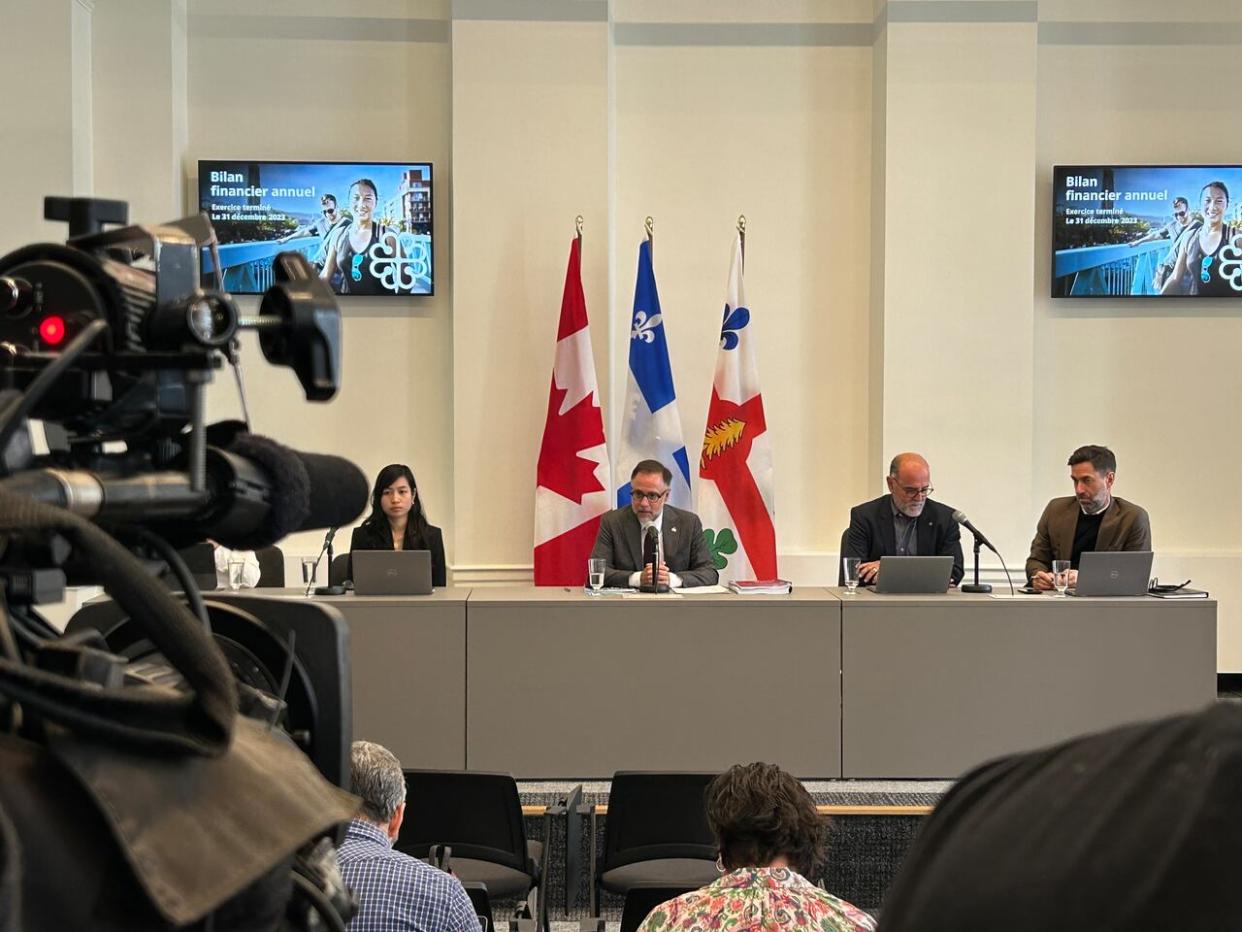Revenue is down and spending is up as City of Montreal posts modest surplus

The City of Montreal barely broke even last year, said the chair of the executive committee Luc Rabouin, during the presentation of the city's annual financial review.
The city wrapped up the 2023 fiscal year with a $187.6 million surplus on a $6.9 billion budget, something Rabouin attributes to a year of high inflation, economic slowdown and a decrease in real estate sales.
"To put it in simple words, our revenues are down and our expenses are up," he said at a press conference Friday.
Rabouin, who is also the responsible for finance, economic development and higher education on the executive committee, says the surplus is the lowest over the last decade, and represents roughly half of what it was last year.
It's like budgeting for a $100 grocery trip and finishing with $2.80 in your pocket after all your items were scanned, he explained.
"You're happy — but it's not a lot as a reserve," he said.
He says the surplus money — $84.7-million for the city — will go toward emergency reserves for special weather events and debt management. The rest of the surplus is divided between the boroughs and the agglomeration council.
Montreal put in a hiring freeze and spending cuts last October when it realized it was headed toward an even tighter surplus of $40 million, and saved $115.7 million. The city had originally budgeted $6.7 billion for the year.
Serge Lamontagne, the city's director general, said a few more heavy snowstorms could have put Montreal in a very different financial situation at the end of the fiscal year.
Rabouin says the city will have to review where and how it spends its money to make sure it's operating as efficiently as possible.
Last year, Montrealers saw their property tax increase to 4.9 per cent which, in line with Valérie Plante's campaign, was just under the inflation rate. Since inflation has since lowered to 2.7 per cent, the Plante administration says the city will have to find new ways to generate revenue next year.
Saint-Laurent borough mayor Alan DeSousa worries the city has an "addiction to spending," as he put it, that will lead to cuts in services.
"The surpluses were not due to the good management of the administration," he said. "[They were] generated by the boroughs, higher interest rates which increase the revenues of the city and transfers that were more generous from the Quebec government," he said.
The member of the Opposition and the city's commission on finances and administration also expressed frustration over the timing of the release of the financial review.
"The administration has given this to us today at noon when they could have done it way before and giving us just barely the weekend to go through volumes and volumes of financial information," said DeSousa. "It's not what I would say is the best of transparency."
The city council will meet next on Monday.
Rabouin said it's too early to tell what the city's finances will look like by December but that overall it's in a similar situation as 2023 and that the year ahead will be "difficult."


